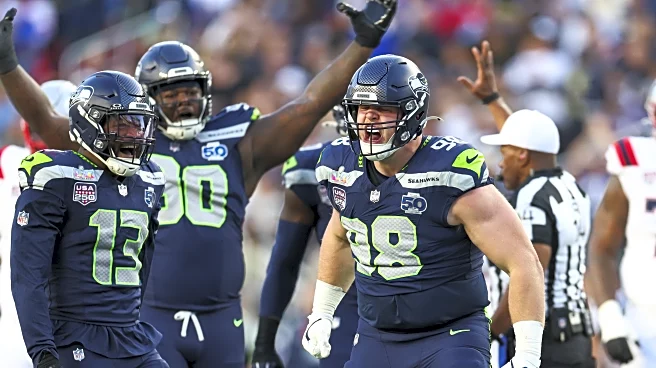What is the story about?
What's Happening?
Gen Z, born between the mid-1990s and early 2010s, is entering the workforce with distinct expectations that differ from previous generations. This cohort prioritizes authenticity, purpose, and flexibility in their professional lives. Unlike older generations who viewed work as a means to achieve prestige or stability, Gen Z seeks deeper connections with their employers, valuing trust and respect over traditional workplace conventions. They thrive in hybrid work environments that allow them to balance personal interests with professional responsibilities. Additionally, Gen Z is drawn to companies that align with their values, such as sustainability and social equity, and they prefer workplaces that offer continuous learning opportunities and promote diversity and inclusion. Their tech-savvy nature also means they expect modern technological infrastructure to support collaboration and innovation.
Why It's Important?
The entry of Gen Z into the workforce is significant as it challenges traditional employment models and compels companies to adapt to new expectations. Organizations that fail to accommodate Gen Z's demands for flexibility, purpose, and continuous learning risk losing out on a generation of workers who are not only technologically adept but also socially conscious. This shift could lead to broader changes in workplace culture, emphasizing mental health, work-life balance, and inclusivity. Companies that successfully integrate these values may benefit from increased employee engagement and loyalty, while those that resist change may struggle to attract and retain talent. The influence of Gen Z is likely to drive innovation in workplace practices, making them a transformative force in shaping the future of work.
What's Next?
As Gen Z continues to enter the workforce, companies will need to reassess their employment strategies to attract and retain this generation. This may involve implementing more flexible work arrangements, enhancing diversity and inclusion initiatives, and investing in technology that supports remote and hybrid work models. Organizations might also need to redefine their corporate values and mission statements to resonate with Gen Z's desire for purpose-driven work. Additionally, businesses could focus on creating learning and development programs that cater to Gen Z's preference for continuous skill enhancement. The ongoing adaptation to Gen Z's expectations will likely lead to a more dynamic and inclusive workplace environment.
Beyond the Headlines
The integration of Gen Z into the workforce may have long-term implications for corporate governance and leadership styles. As this generation values transparency and authenticity, there could be a shift towards more open and communicative leadership models. Furthermore, Gen Z's emphasis on social responsibility might influence corporate social responsibility (CSR) initiatives, encouraging companies to take more active roles in addressing societal issues. This generational shift could also impact consumer behavior, as Gen Z employees advocate for brands that align with their values, potentially driving changes in marketing strategies and product development.
















